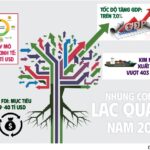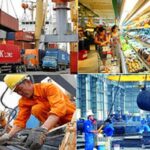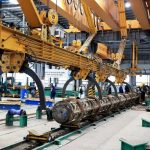Mr. Tran Si Chuong is an expert in economics and business development strategies. In the field of international relations, he served as a Congressional Aide for Diplomacy and Foreign Trade and as a Senior Advisor on Monetary and Economic Policies to the US House Banking Committee in Washington, DC.
He is also a co-author, along with Professor James Riedel (Johns Hopkins University, USA), of the first research report published by the World Bank and IFC in 1997 on the Vietnamese economy, which proposed policies to support the emerging private sector.
According to the expert, regarding tariff policies from the US, it is essential to recognize that they are not merely commercial measures but signals of a “new geo-economic order” where the “rules of the game” are shaped by political will.
Emphasizing the message that “The world is transitioning, and ultimately, self-reliance and self-determination are crucial,” we had a discussion with economist Tran Si Chuong to elucidate the challenges, opportunities, and strategies for Vietnam amidst changes in the global trade order.

You once shared that “The US no longer wants to assume the role of global leadership as before.” What, in your opinion, are the reasons for this change, and what does it signify for the global trade order?
The US was once the architect of globalization, promoting free trade and multilateral institutions like the WTO. However, the US is now retreating from this role due to three main reasons:
Firstly, the domestic economy is under pressure from inequality and job losses in manufacturing. The wealth gap in the US is widening, and it can be argued that the US has the widest and fastest-growing inequality among advanced economies. Currently, the top 1% richest Americans hold about 34% of the nation’s wealth, while the bottom 50% hold a mere 2.8%. Nonetheless, in absolute terms, the poor in the US are wealthier than many people in other countries. For instance, the poorest state in the US, Mississippi, has a higher average income than France or Italy.
However, the issue is not about absolute numbers but the psychological sense of inequality when comparing oneself to those around them. Hence, the wealth gap leads to discontent among Americans, and President Donald Trump tapped into this sentiment with his policies.
Regarding employment, Americans believe that offshoring production results in trade deficits and job losses. Nevertheless, in my opinion, this is inaccurate, as the unemployment rate in the US is lower than in technologically advanced countries like France and Italy and is on a downward trend. In reality, by producing in Vietnam or China, the US gains access to cheap and aesthetically pleasing goods while becoming richer, whereas the cost of labor in the US is significantly higher than in these offshore locations.
Secondly, American voters are no longer willing to “pay the price” for global leadership. Americans have realized that their schools, hospitals, and infrastructure are deteriorating while they continue to spend vast sums on military bases abroad. They believe that this money should be invested in improving domestic education, healthcare, senior care, and overall quality of life.
Thirdly, competing with China has become a top priority due to concerns about potential challenges to America’s future dominance. Although China has not yet surpassed the US fundamentally, its rapid growth rate has caught America’s attention.
Consequently, the world is entering a post-globalization era, where trade is driven by strategic and security interests rather than purely by free-market principles.
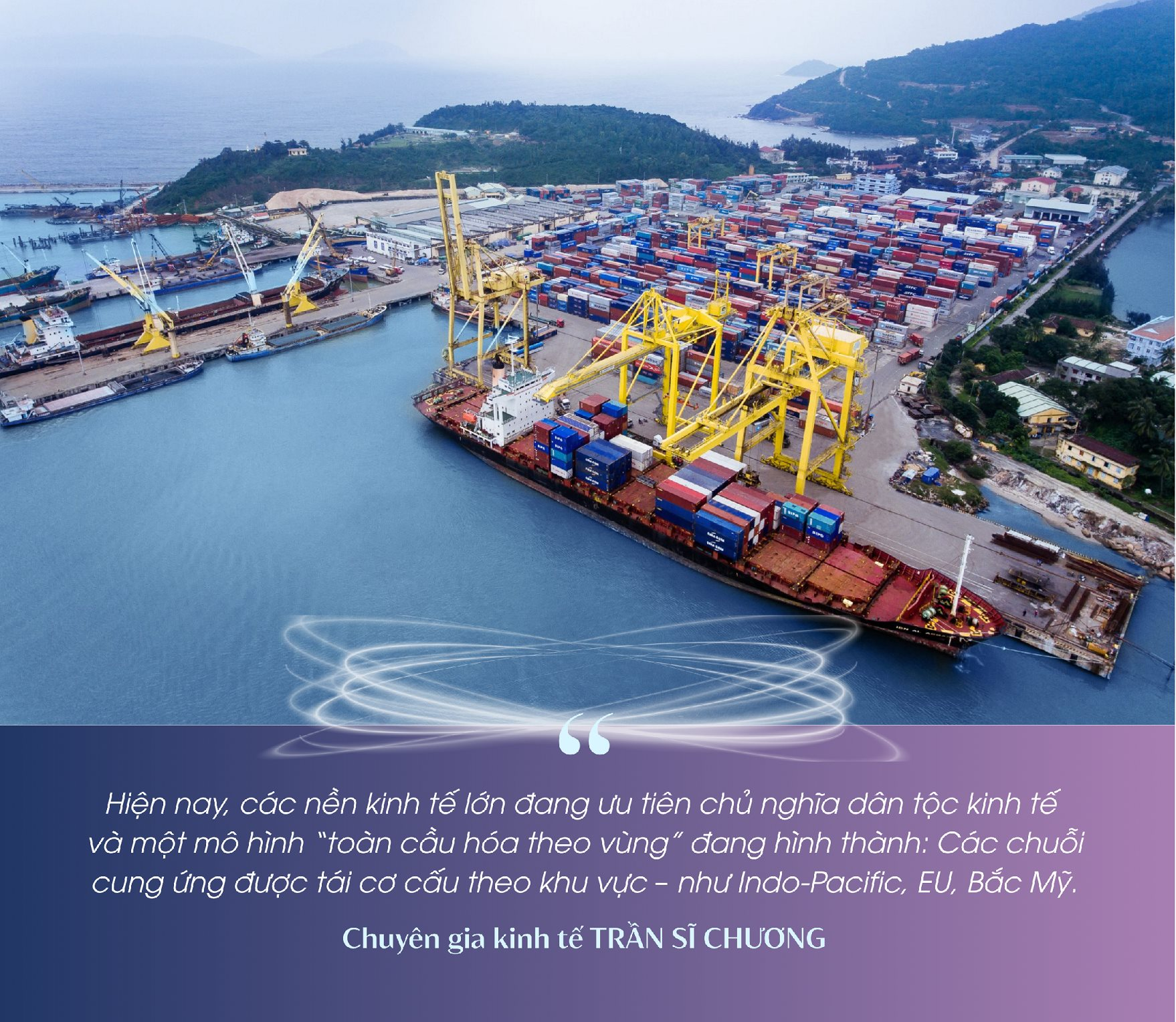
Given the changing US leadership role mentioned above, how do you assess the statement that “old-style globalization is dying”? How will the role of the WTO evolve in this context?
The old model of globalization relied on shared rules, neutral arbitration, and multilateral consensus. However, major economies are now prioritizing economic nationalism, and a model of “regional globalization” is emerging, with supply chains being restructured along regional lines, such as Indo-Pacific, EU, and North America.
The World Trade Organization (WTO) is not disappearing, but its role is becoming increasingly subdued. The WTO’s dispute settlement mechanism has weakened, and decision-making power is shifting towards bilateral agreements or regional alliances.
In your opinion, what factors will shape the new geo-economic order?
No one knows precisely how the new world order will unfold; it’s unpredictable. It could be bipolar, but the nature of this bipolarity and the rules of the new playing field remain uncertain. However, in my view, there are three main pillars that will shape the new world order.
Firstly, technology will play a pivotal role, with AI, big data, and green energy restructuring global power dynamics. Presently, the importance of digital transformation is undeniable—productivity enhancement is unattainable without technological integration. Additionally, a focus on “greenness” is essential to avoid wastefulness, and renewable energy sources offer a means to conserve energy resources.
Secondly, geopolitical factors come into play, including the US-China competition and the prominent roles of India and ASEAN. Notably, the economic influence of the ASEAN bloc is significant, underscoring the need for solidarity to forge a robust collective capable of safeguarding shared interests.
Thirdly, nations that establish robust ecosystems for innovation, self-sufficiency in food and energy, will gain a competitive edge. Among these, Vietnam’s weakest link is its innovation ecosystem. To cultivate a seed, one needs not only fertilizer, moisture, and minerals but also a nurturing environment for it to thrive. I recommend that Vietnam focus on building a robust innovation ecosystem in a concentrated manner, moving away from a trend-driven approach, to unlock its true potential.

What is your assessment of Vietnam’s response to the US’s announcement of a 46% retaliatory tariff? What should Vietnam do during the 90-day postponement?
In my opinion, Vietnam’s leadership has responded very reasonably. When faced with the threat of a 46% retaliatory tariff, they chose not to retaliate but instead offered to eliminate import tariffs. Vietnam sent a positive message: We are open to imports from the US. If the Vietnamese people and nation need any products from the US, we are willing to import them without imposing tariffs, allowing our people to purchase them at lower and better prices.
However, as the world transitions, self-reliance and self-determination remain crucial. We must ensure food security to prevent hunger and energy security to avoid power shortages. Food and energy are the core pillars of the economy, and it is essential to diversify and not rely too heavily on a single market.
Vietnam needs to view President Donald Trump’s actions not merely as commercial measures but as signals of a new geo-economic order where the “rules of the game” are shaped by political will.
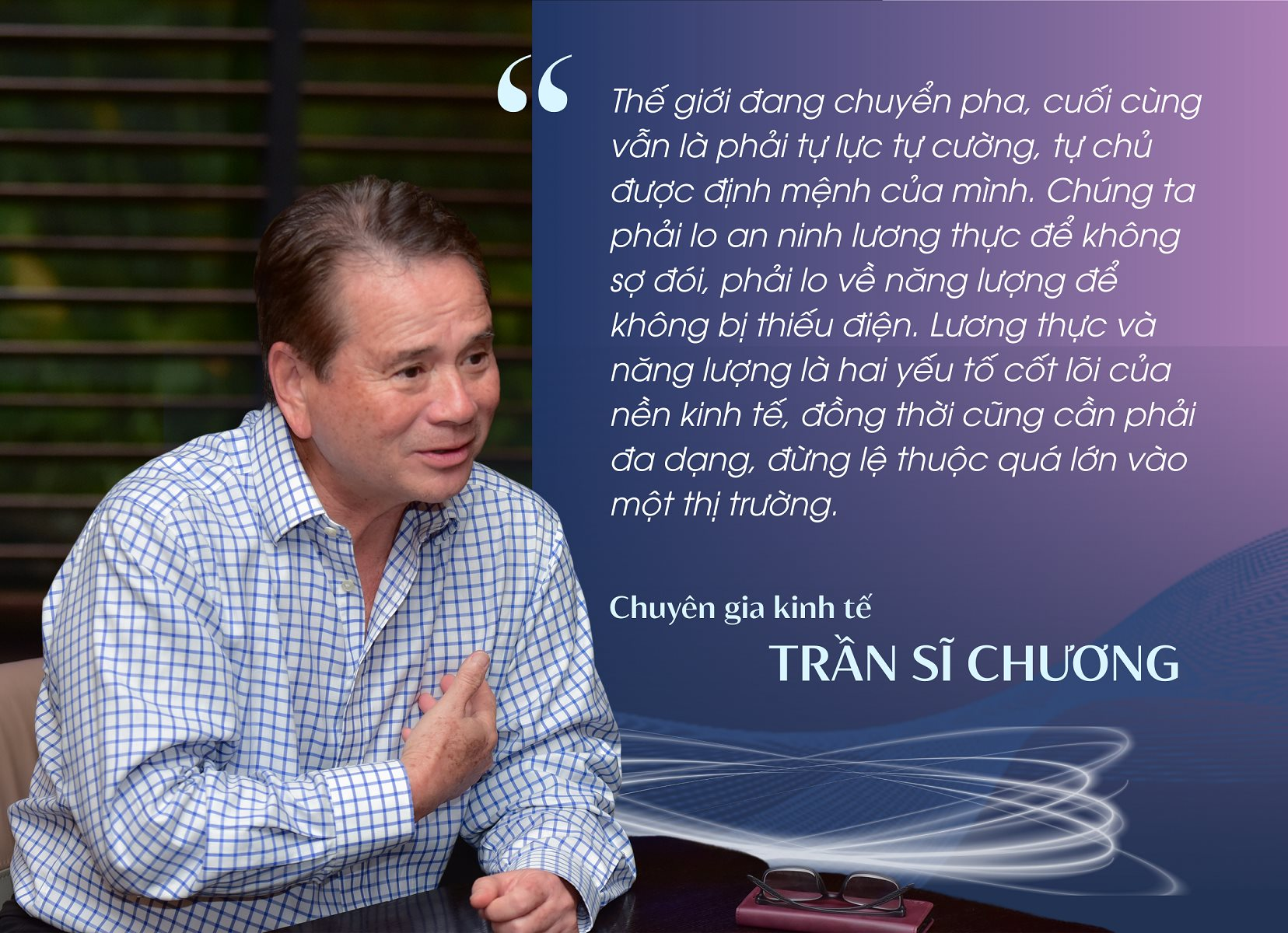
During the 90-day postponement of the retaliatory tariff, I propose that Vietnam take action in three key directions. Firstly, we should proactively negotiate and demonstrate transparency and goodwill in our trade relations with the US.
Secondly, it is imperative to review and restructure our supply chains to reduce dependence on vulnerable industries. Vietnam needs to explore new markets, such as the emerging Middle East with its high consumption demand due to high average incomes. Additionally, South Asia is another promising market that Vietnam can tap into. We must diversify our supply chains to ensure that Vietnam is not left vulnerable in both upstream and downstream processes.
Thirdly, accelerating digitalization and increasing the value-added ratio in exports are crucial. This is our intrinsic strength! Now more than ever, amidst a dynamic and uncertain world with risks and instability, intrinsic strength—the ability to rely on ourselves—is of paramount importance. Digital transformation is the key to unlocking this strength. For instance, in agriculture, this is the fastest way to increase productivity with the lowest investment, but special attention must be given to the factors and consequences of climate change to ensure sustainable development.
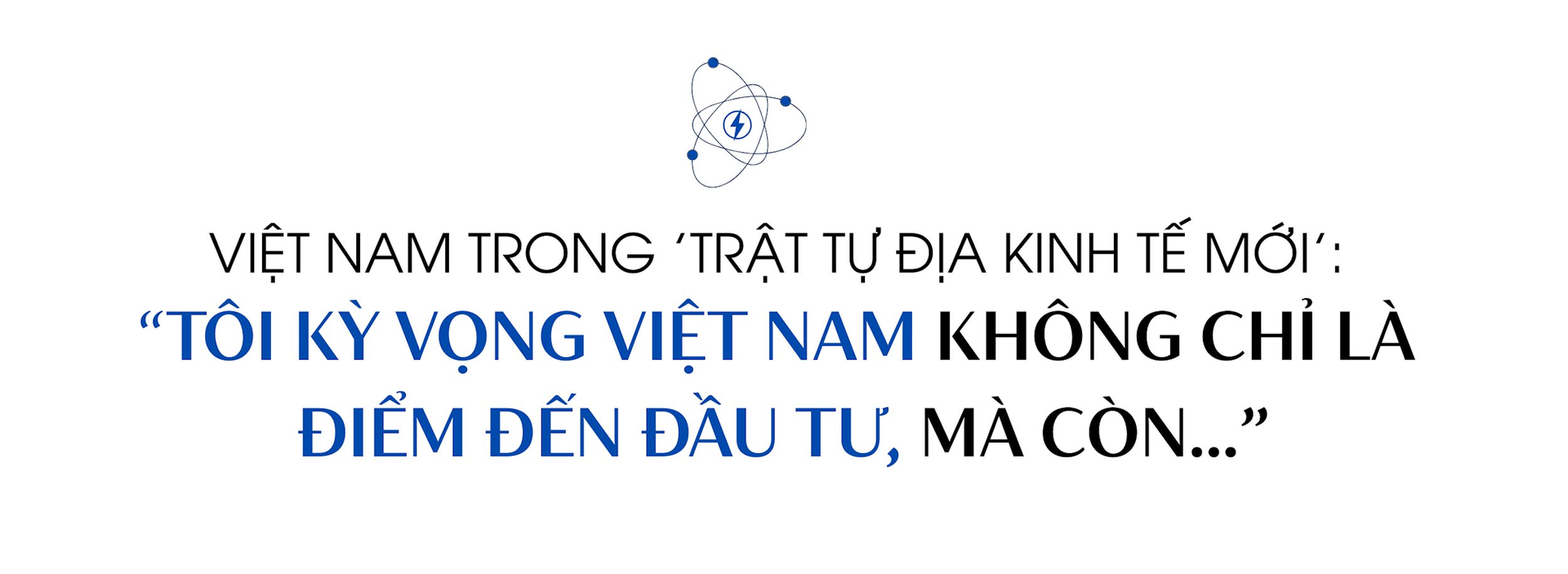
Amidst global trade uncertainties, what challenges will Vietnam face, and what opportunities should we seize?
In my opinion, the most significant challenge stems from the potential contraction of export markets due to protectionism, rising geopolitical risks, and increasingly complex technical barriers.
However, we also have numerous opportunities if we capitalize on our natural advantages in agriculture, our strategic geographical location, and our young and tech-savvy workforce. Notably, an innovation ecosystem in software and agri-tech is taking shape, presenting Vietnam with a chance to leapfrog in the global value chain.
Given these opportunities and challenges, is it feasible to achieve the economic growth target of 8% by 2025 and reach double digits in the 2026-2030 period?
It is challenging to provide a definitive answer, but I believe that this goal is attainable if we change our development mindset. Vietnam must transition from a “cheap assembly” model to a “high-value” model in industrial development.
Every nation starts as a laborer, earning by working for others, before progressing to creating added value and applying advanced technology. However, Vietnam has been stuck in this assembly model for over 30 years. It is time for a decisive shift in our mindset.
To achieve this, we must focus on three pillars: technology upgrade (especially in smart agriculture and green production), development of digital human resources (with an emphasis on AI, software, and management skills), and institutional reform to build an innovative startup ecosystem.

Finally, what are your expectations for Vietnam’s role in the “new geo-economic order”?
Personally, I envision Vietnam not only as an investment destination but also as a hub of innovation in Southeast Asia. We can be a leader in smart agriculture, AI applications, software, digital finance, and renewable energy. To achieve this, we need national confidence, a long-term vision, and a cohesive ecosystem encompassing the government, businesses, and the younger generation.
“Embrace Vietnamese Products to Boost Economic Growth”
Encouraging aggregate demand while supporting supply is the vision outlined in Directive No. 29/CT-TTg, dated August 27, 2024, on stimulating consumer demand, assisting production, business, and domestic market development. This directive was recently issued by Prime Minister Pham Minh Chinh. The expectation is that this will extend the period of growth for the Vietnamese economy.
What is Vietnam’s “Achilles’ heel” according to foreign investors?
Tim Evans, the CEO of HSBC Vietnam, has shared some recommendations to help Vietnam overcome barriers and attract more foreign investment.


